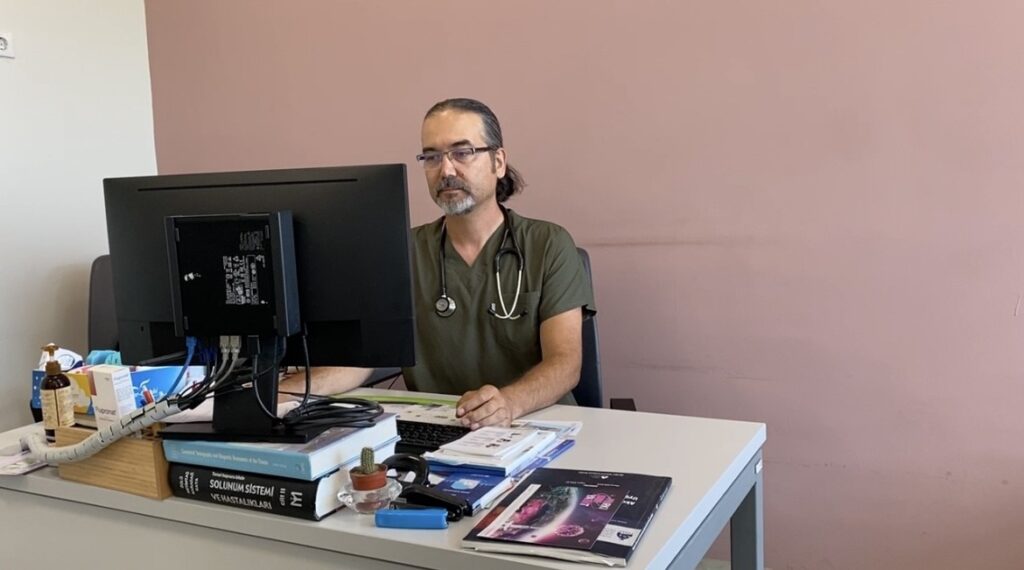The risk of obesity in children who go to school without having breakfast.
Experts indicate that children who go to school without having breakfast have a significantly high risk of obesity, and they warn that children must have breakfast before going to school. Children who go to school without breakfast experience a drop in blood sugar, attention …

Experts indicate that children who go to school without having breakfast have a significantly high risk of obesity, and they warn that children must have breakfast before going to school.
In children who go to school without breakfast, issues such as low blood sugar, attention deficit, concentration problems, adaptation issues in school, behavioral disorders, learning difficulties, and focus problems can be observed. Experts warn that to avoid these problems, children should have a balanced and filling breakfast before going to school. Experts state that the habit of having breakfast begins in the family and recommend that the mother, father, and child should all be at the breakfast table in the mornings.
“Children may experience low sugar levels and focus problems”
Emphasizing that one of the most important meals for children in their growth and development phase is breakfast, Uzm. Dyt. Beyza Vural Öten from Medicana Konya Hospital’s Nutrition and Diet Department stated, “The sooner breakfast is done without delay, the better it is for us. Children who are not gaining weight and those who are in their growth and development phase should have breakfast on time without skipping it. Because after a sleep period of 10-12 hours overnight, their first meal is breakfast. In children who go to school without breakfast, attention deficit, concentration issues, adaptation to school, behavioral problems, and learning difficulties can be observed. Children’s sugar levels can drop, leading to focus problems. Therefore, it is very important for them to obtain their first energy source from breakfast to regulate blood sugar and provide energy,” she said.
“It is important to offer various options for the child’s appetite”
Stating that not only having breakfast but also its content is important, Uzm. Dyt. Beyza Vural Öten noted, “The nutrients that will be in breakfast should be compatible with each other. They should be nutritious for children. There must be protein sources such as eggs, cheese, and dairy products included. Because proteins are necessary in children’s nutrition for repairing muscles and tissues, growth, and providing satiety. There should definitely be one egg every day; it can be diversified, it doesn’t have to be boiled—an omelet can be made, vegetable muffins, cakes, healthy pancakes, or crepes can be prepared. It is important to offer various options for the child’s appetite. There should also be fruits and vegetables that are sources of vitamins, minerals, and fiber, which stimulate the intestines and digestive system, and are rich in antioxidants. We should also include healthy fats that will keep them full, such as olives, walnuts, hazelnuts, almonds, avocados, and tahini. In addition, complex carbohydrates like whole grain breads, rye breads, and oats should be preferred as an additional energy source,” she explained.
“The choice of food for the first meal can affect the entire day”
Uzm. Dyt. Beyza Vural Öten pointed out that the risk of obesity and metabolic syndrome is much higher in children who go to school without breakfast, saying, “Insulin resistance, hypertension problems, and changes in lipid profiles can be observed more frequently. This is because children who go to school without breakfast may encounter unhealthy options at school and tend to choose processed foods, and the choice of food for the first meal can affect the entire day. Therefore, we can say that breakfast determines the diversity and course of the diet,” she stated.
“Breakfast must be a habit for both the family and the child”
Noting that when children go to school without breakfast, unhealthy options available at school become their choice, Beyza Vural Öten said, “Here, options like pastries, böreks, and simits, which are very fatty and made from simple carbohydrates, can be easily found. Consuming these can lead to health problems such as obesity, fatty liver, various cardiovascular diseases, and diabetes. If there is no time to have breakfast at home, I recommend that families pack healthy breakfast alternatives in their children’s bags. Of course, one of the most important things for children is not verbal cues but behavioral situations, meaning whether the family is having breakfast or not influences the child’s choices. Breakfast must be a habit for both the family and the child.”







